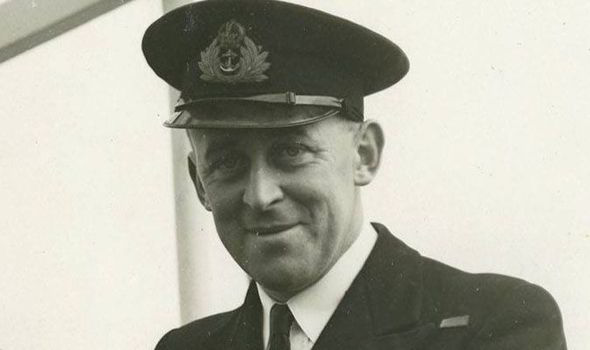On February 25th, 2015 a collection of seven medals that had been fairly won will be going up for auction. The collection was that of Royal Navy Commander Clive Gwinner, and each medal signifies one enemy U-Boat that he had sunk during the Battle of the Atlantic. Pre-auction estimates put the sale price of his medal collection at 9,000 British Sterling Pounds.
Commander Gwinner was a man of taste. He enjoyed fast cars and faster women. He took this approach to all aspects of his life, and his submarine kills are symbolic of that nature of aggressive pursuit.
Having served in WWI, he gained valuable insight into submarine warfare and counter-tactics against these silent hunters. He left the service after the war but returned after hostilities broke out in 1939.
Gwinner’s submarine kills were most impressive even by Royal Navy standards. His first and perhaps most impressive kill as far as style was that of the Italian submarine Pietro Calvi. In 1942, the Calvi’s commander, Primo Longobardo, was the best Italian submarine captain that nation ever produced. Tracking down Gwinner’s ship, Pietro Calvi used depth charges to force its enemy to the surface. Then the U-Boat itself surfaced and began to rack the HMS Lulworth with intense firepower. Finding himself out-gunned, Gwinner’s crew rammed Pietro Calvi with the prow the Lulworth, breaking the enemy sub in two. Another sub tried to take the Lulworth in its flank but missed, and Gwinner sent a snide comment to them about how much spaghetti they had with them.
This was just the first of the seven kills he performed. Most of his kills were comparatively un-noteworthy, yet in 1943 he again pulled off an outstanding accomplishment. When he discovered the German U-Boat U-538 off the coast of Ireland, Gwinner pursued it with ruthless drive. For thirty-nine hours he hunted the elusive sub. His patience and persistence paid off when the enemy sub was forced to surface; Gwinner’s crew bombarded it with depth-charges and gunfire that destroyed the ship completely, the Express reports.
Not all of Gwinner’s service was spent in hunting down U-Boats. On June 6, 1944, he was assigned the task of protecting the D-Day invasion fleet from any U-Boat trying to hinder the progress of the invasion.
His feats were renowned for their aggressiveness. Out of the seven medals he was awarded the crowning pieces were two Distinguished Service Orders and one Distinguished Service Cross.
Married twice after the war, Gwinner died in 1998 in Vancouver, Canada at age 89.
